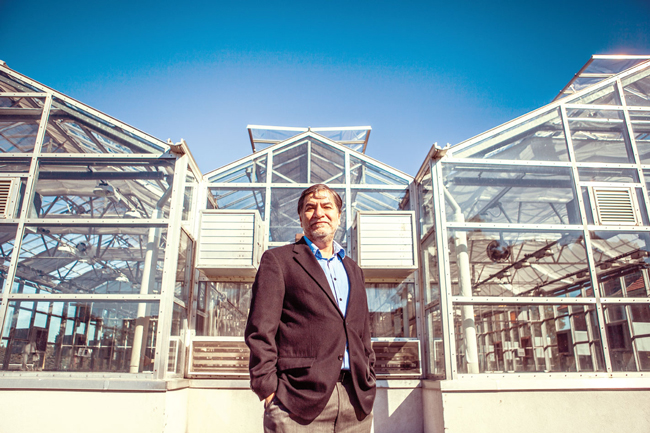
McGill researcher collaborating with FAO to gather global data on food insecurity
By Julie Fortier
Data from the United Nations Food and Agricultural Organization (FAO) indicate that, worldwide, about 800 million people suffer from undernourishment. But these numbers don’t provide the whole picture of food insecurity, according to Dr. Hugo Melgar-Quiñonez, director of the McGill Institute for Global Food Security.
“Based on the amount of food available for consumption in a country, the FAO estimates whether it meets the caloric needs of its population,” he says. “But this estimation is based on a sedentary lifestyle, so it is the ‘more optimistic’ scenario. In rural areas, or where livelihoods depend on more physical work, the caloric needs are higher, so the magnitude of the problem could be larger.”
Furthermore, this indicator does not take into account the nutritional quality of the food available. As Melgar-Quiñonez points out, “people would die very quickly if they only ate white bread or white rice.”
The nutrition expert, who is also a medical doctor, points out that 1.5 billion people are iron deficient and a third of the world population is deficient in zinc, two nutrients that are “key for life and for immune function.”
But a new way of measuring food insecurity could help develop a more comprehensive picture of food insecurity in the world. The FAO project Voices of the Hungry uses a questionnaire, which, integrated into the Gallup World Poll, is administered in more than 150 countries. The questionnaire is modelled on the Latin American and Caribbean Food Security Scale, applied in some 20 countries by Melgar-Quiñonez and colleagues, and based on a tool used in the United States and Canada since the late 1990s.
The experience-based scale includes eight questions, that ask people about the variety and nutritional quality of their food, and whether, in the last 12 months, they had to skip meals or ran out of food. Included every year, it will provide a measure of the level of severity of global food insecurity.
“If you want to help hungry people, you need to know who they are and where they are,” adds Melgar-Quiñonez, who served on the advisory group of the Voices of the Hungry project. “This project allows the application in a fast and affordable way and in a majority of countries – including in places where food security has never been measured – of a valid and reliable instrument.”
Through Melgar-Quiñonez’s collaboration with the FAO, McGill has been given a licence to access the complete data sets of the Gallup World Poll. “This gives us access to an immense amount of data on determinants or consequences of food insecurity. It offers many possibilities of research avenues to pursue, which our graduate students are exploring in the new McGill Global Food Security Data Laboratory.”
More articles on Hugo Melgar-Quiñonez in the McGill Reporter
Conference on Global Food Security offers food for thought (October 2013)
The changing face of global food security (Oct. 2013)
